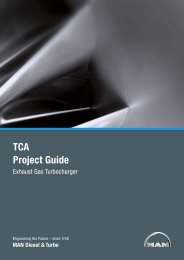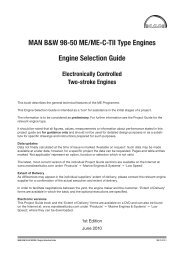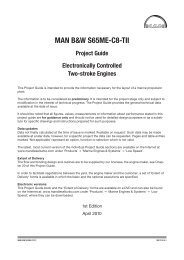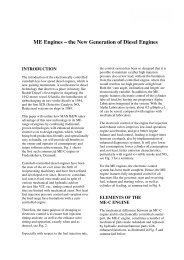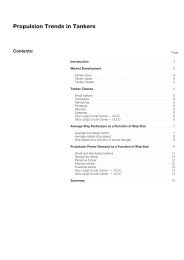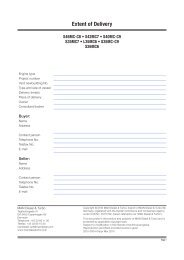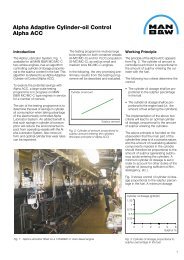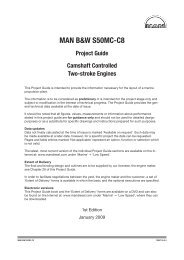Image Study Diesel Power Plants - MAN Diesel & Turbo
Image Study Diesel Power Plants - MAN Diesel & Turbo
Image Study Diesel Power Plants - MAN Diesel & Turbo
Create successful ePaper yourself
Turn your PDF publications into a flip-book with our unique Google optimized e-Paper software.
<strong>Image</strong> <strong>Study</strong><br />
1. EXECUTIVE SUMMARY<br />
Today’s marketplace for power generation is<br />
highly competitive and covers a diverse range<br />
of products and technologies. A growing<br />
concern about the efficient use of resources<br />
and the reduction of emissions is going to have<br />
a lasting impact on future developments within<br />
the industry.<br />
The main goal of this study, which was<br />
conducted by KPMG on behalf of <strong>MAN</strong> <strong>Diesel</strong><br />
& <strong>Turbo</strong> SE, is to investigate engine-based<br />
power plants based on four distinct criteria:<br />
technological advancement, energy and<br />
environmental policy and impact, cost<br />
effectiveness, and flexibility. The actual<br />
findings are being compared with the current<br />
image of the engine technology while<br />
competing alternatives such as coal-, nuclear-,<br />
or gas turbine-based power plants are looked<br />
at as well.<br />
The study shows that there is a very broad<br />
spectrum of different factors that needs to be<br />
considered when evaluating different power<br />
plant options and highlights the importance to<br />
make evaluations on a case-by-case basis.<br />
Following are some of the key findings of the<br />
study.<br />
The most current solutions for engine-based<br />
power plants being sold on the market today<br />
certainly represent advanced technology.<br />
However, due to engine’s long lifetimes (20<br />
years and above) and the fact that they have<br />
experienced continuous advancements over<br />
the years, plants in operation today can vary<br />
greatly in terms of their technological<br />
advancement.<br />
When it comes to environmental impact, the<br />
ability to run on various fuels (e.g. liquid bio-<br />
fuels, gas and oil derivatives), a low water<br />
consumption rate for cooling purposes and the<br />
option to form hybrid solutions with renewable<br />
energy plants (e.g. wind, solar or hydro power)<br />
are key advantages of engine-based plants.<br />
Nonetheless, the majority of such plants today<br />
still run on oil derivatives. And while the use of<br />
fossil fuels always produces some amount of<br />
emissions, oil derivatives generally create<br />
more emissions than alternative fuel types.<br />
Hence, the best available technology as well<br />
as the best fuel type available should be used<br />
when operating fossil-based power plants.<br />
Especially considering the growing concern<br />
about the responsible use of resources,<br />
engine-based solutions’ comparatively high<br />
efficiency rates are a certain advantage when it<br />
comes to cost effectiveness. On the same<br />
token, the volatility of the fuel price combined<br />
with the significance of fuel costs as a cost<br />
parameter can have a considerable impact on<br />
long-term calculations for fossil-based<br />
electricity generation.<br />
1



